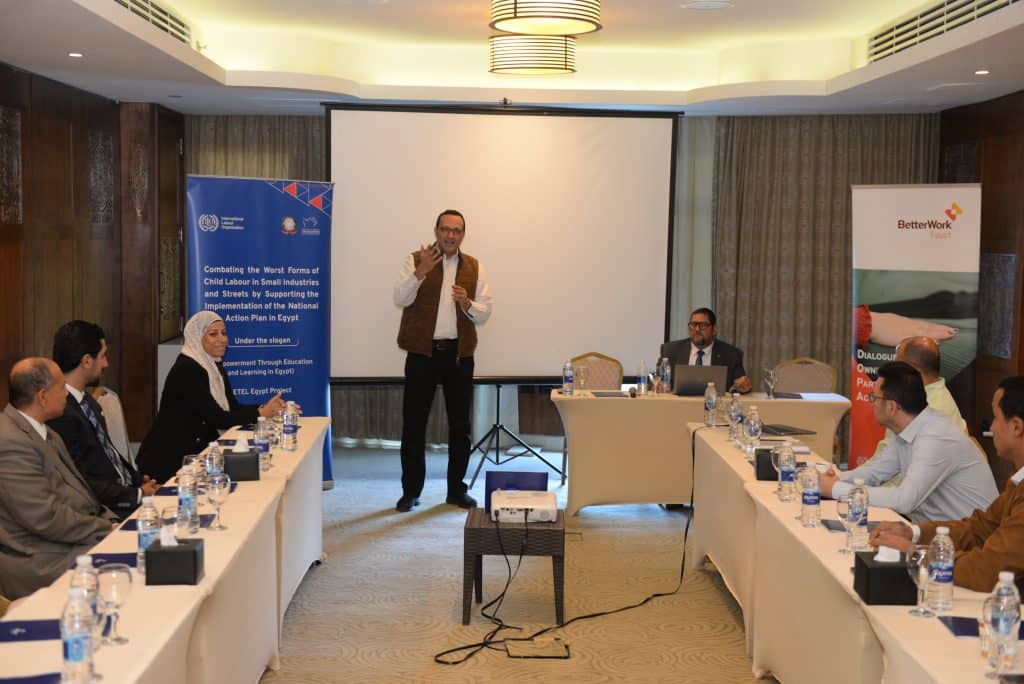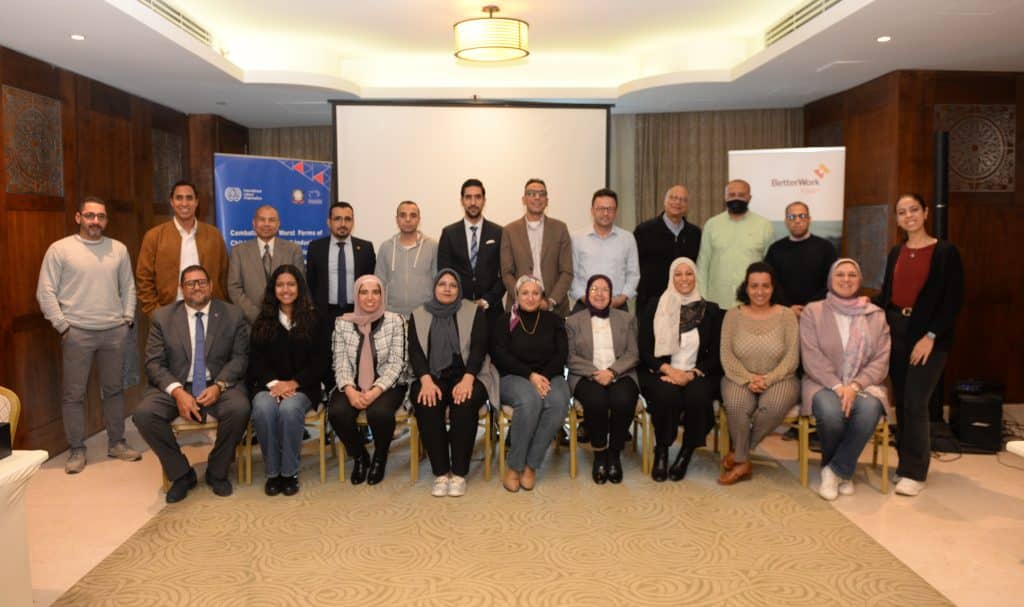The International Labour Organization (ILO) and Federation of Industries (FEI) introduce tools that aim to improve working conditions across sectors
CAIRO, 1 December – ILO’s Better Work Egypt (BWEg) programme, Combating the Worst Forms of Child Labour in Small Industries and Streets by Supporting the Implementation of the National Action Plan in Egypt project (ETEL), Federation of Egyptian Industries (FEI) and Egyptian Chamber of Apparel and Home Textiles (ECAHT) united for a workshop to safeguard the future of Egypt’s industrial sector. The outcome was validating three key resources that aim to address the eradication of child labor, upholding workers’ rights, and strengthening OSH protections. The workshop culminated The key tools that will be launched provide accessible resources for employers and workers in Egypt’s industrial sector: the Code of Conduct on Child Labour, the Occupational Safety and Health (OSH) leaflet, and the Fundamental Principles and Rights at Work (FPRW) leaflet.

Inspired by the challenges faced by the garment sector, these resources, drawn from national and international labour standards, aim to address persistent non-compliance issues. As Dr. Farid Hegazy, the ILO Employers Activities Senior Specialist explains, “We want to protect companies and employers from unknowingly falling into the trap of practices that either may put them at risk of non-compliance with national and international labour standards that would jeopardize their relations with buyers and consumers and thus, on the bottom line, their exports. This is the case with fundamental principles and rights at work, which includes child labour.” By maintaining compliance and eradicating child labour, companies can not only protect their reputation, but also contribute to a more equitable and just global economy. “For the FEI Industries to participate in the development and own such a code of conduct strengthens their position vis-à-vis their members through the provision of value-added services,” Dt. Hegazy added.
Protecting children from exploitation is not just a legal obligation, it is a moral imperative that reflects the core of ethical business practices. As Ms. Marwa Salah-Abdou, National Project Coordinator of ETEL Project noted “In today’s interconnected world, companies that turn a blind eye to child labour not only harm vulnerable children, but also risk their own reputation and long-term viability.” The new Child Labour Code of Conduct draws from both international conventions and Egypt’s national legislation, specifically Decree 215 for 2021 that stipulates the law on child employment and professions that children are prohibited to be engaged in.
In today’s fast-evolving fashion market, brands are advocating for more ethical standards globally to promote sustainable and socially responsible practices. This trend, influenced by corporate due diligence legislation, has led to the implementation of more stringent regulations for factory enterprises, requiring them to comply with fair labour practices and ensure safer working conditions.
The FEI underscored the benefits for Egyptian businesses integrating these tools. . As Dr. ElSayed Torky, FEI Senior Advisor states: “Strengthening the Fundamental Principles and Rights at Work (FPRW) is essential for the growth of Egyptian exports. By aligning with international labour standards and meeting the expectations of global brands, companies are empowered to enhance working conditions and operational efficiency. Through collaboration with the FEI and ECAHT, this approach strengthens supply chains, opens new opportunities in international markets, and ultimately benefits businesses in Egypt.”

The initiative’s next step is introducing these three resources to the Ministry of Labour (MoL) to be used as references during labour and OSH inspection visits beyond BWEg-registered factories and the garment sector, thus promoting ethical standards and labour rights on a broader scale in Egypt’s industrial sectors. “We aim to leverage this partnership and these resources to scale our impact across industries, addressing gender equality, labour rights, and safety regulations,” Mr. Alaa Al Saifi, Operations Manager at BWEg Programme emphasized.